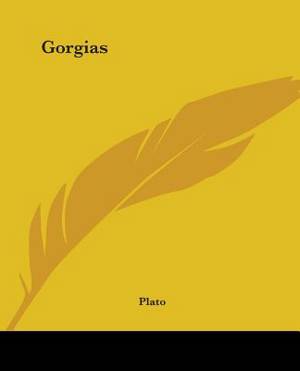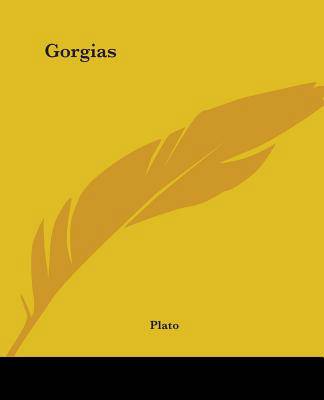
- Afhalen na 1 uur in een winkel met voorraad
- Gratis thuislevering in België vanaf € 30
- Ruim aanbod met 7 miljoen producten
- Afhalen na 1 uur in een winkel met voorraad
- Gratis thuislevering in België vanaf € 30
- Ruim aanbod met 7 miljoen producten
Omschrijving
Gorgias is a philosophical dialogue written by Plato, which explores the nature of rhetoric and its relation to philosophy. The book is named after Gorgias, a famous Greek orator and sophist who is a central figure in the dialogue. The dialogue is set in Athens, and begins with Socrates engaging in a conversation with Gorgias, in which he questions the value of rhetoric and the role of the orator in society. Gorgias argues that rhetoric is a powerful tool for persuasion and can be used for both good and evil purposes. Socrates challenges Gorgias' views and argues that true knowledge and wisdom cannot be attained through rhetoric alone, but must be based on a deeper understanding of reality. He also argues that the pursuit of virtue is more important than the pursuit of pleasure or power. The dialogue continues with various other characters, including Gorgias' student Polus and the philosopher Callicles, engaging in debates on the nature of rhetoric and its relation to morality and justice. Overall, Gorgias is a complex and thought-provoking work that raises important questions about the nature of truth, knowledge, and morality, and the role of language and persuasion in shaping our understanding of the world.SOCRATES: Very good, Callicles; but will he answer our questions? for I want to hear from him what is the nature of his art, and what it is which he professes and teaches; he may, as you (Chaerephon) suggest, defer the exhibition to some other time.This scarce antiquarian book is a facsimile reprint of the old original and may contain some imperfections such as library marks and notations. Because we believe this work is culturally important, we have made it available as part of our commitment for protecting, preserving, and promoting the world's literature in affordable, high quality, modern editions, that are true to their original work.
Specificaties
Betrokkenen
- Auteur(s):
- Uitgeverij:
Inhoud
- Aantal bladzijden:
- 164
- Taal:
- Engels
Eigenschappen
- Productcode (EAN):
- 9781419122132
- Verschijningsdatum:
- 17/06/2004
- Uitvoering:
- Paperback
- Formaat:
- Trade paperback (VS)
- Afmetingen:
- 193 mm x 235 mm
- Gewicht:
- 303 g

Alleen bij Standaard Boekhandel
+ 67 punten op je klantenkaart van Standaard Boekhandel
Beoordelingen
We publiceren alleen reviews die voldoen aan de voorwaarden voor reviews. Bekijk onze voorwaarden voor reviews.









